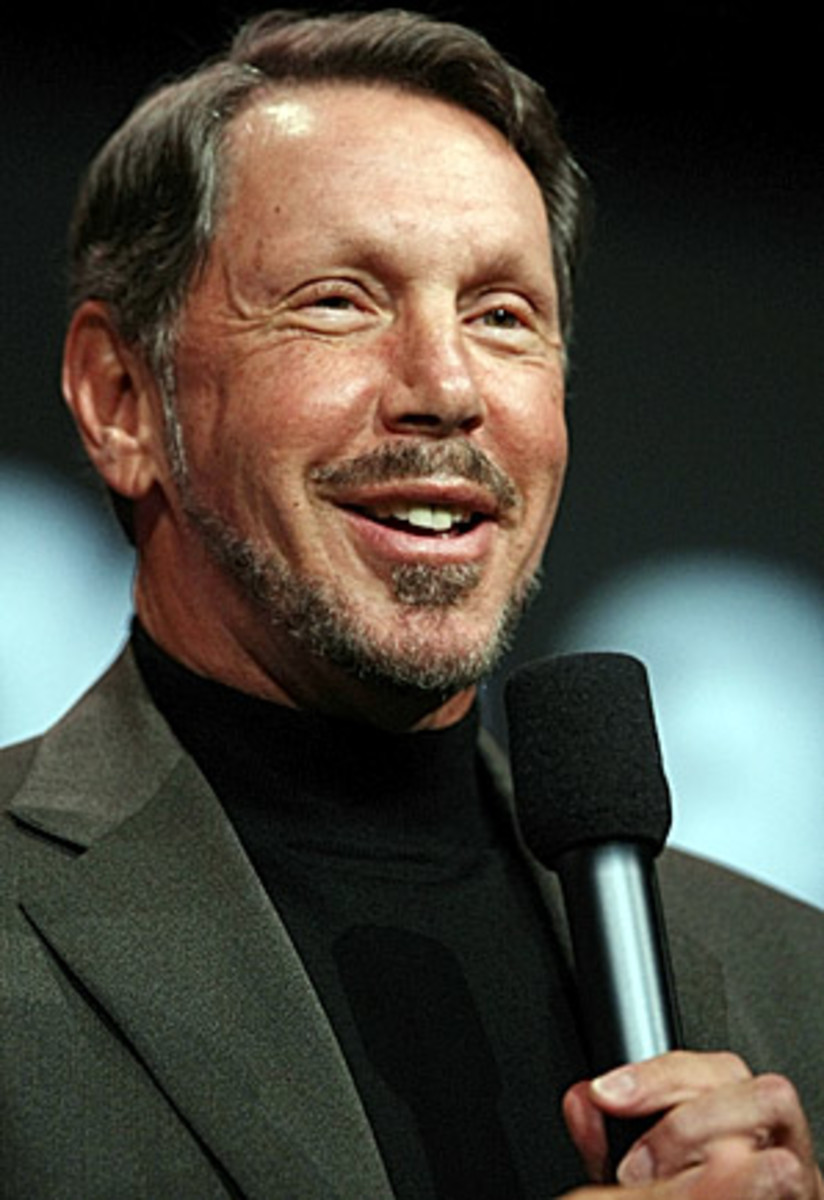Potential sale wouldn't guarantee overnight success for Warriors
A man in a brown suit showed up halfway through the first quarter of the Golden State Warriors' game against the Cleveland Cavaliers on Monday and sat in the front row across from the home team's bench. With his buddy toting a pint-sized draft beer, the man looked like any ordinary citizen attending a weekday game.
Except this was the fourth-wealthiest guy in the world, and the name of his company happened to adorn the outside of the arena.
The man was Oracle co-founder and CEO Larry Ellison, worth an estimated $27 billion, and it was a big deal he was at the game because, for years, he has been rumored to be the next owner of the embattled Bay Area franchise, should Chris Cohan decide to sell.
In fact, many who follow the Warriors have salivated at the thought of Ellison's taking control of, and subsequently saving, an organization that has made the playoffs once in the past 15 years, and has dismantled the key pieces of the team that upset the Dallas Mavericks in the 2007 playoffs, the first No. 8 seed to beat a top seed in a seven-game series.
It is well known within NBA circles that Ellison wants to own a team at some point. He reportedly got involved in discussions to purchase the Seattle SuperSonics when Howard Schultz's group was attempting to unload that team. Ironically, Schultz, the Starbucks chairman, said at the time that he would not sell to Ellison because Ellison made it clear that he was going to move the team to San Jose. Schultz instead sold to Clay Bennett's group, which moved the team out of the Northwest anyway, to Oklahoma City.
The holdup for Ellison with the Warriors is that Cohan, despite Forbes recently valuing the franchise at $315 million, is seeking a sales price that one source said "started with a four." As in $400 million. And who could blame Cohan, really, after seeing the Sonics, a team that had a lousy lease, go for $350 million?
But if Ellison is anything, he is a shrewd businessman who, like JasonAlexander's character in the movie Pretty Woman, loves the smell of the deal. Ellison is not going to spend an exorbitant fee just to join the elite club of NBA ownership. He belongs to enough elite clubs already.
And so Warriors fans wait until owners like Cohan and Memphis' Michael Heisley realize that their franchises are no longer worth the inflated values they perceive them to be -- which may be part of the reason commissioner David Stern is so steadfast about bringing down the league's cost structure and bringing more teams back to profitability. If the upside of ownership no longer is in equity built through appreciation, why buy?
It seemingly cannot get much worse for Golden State fans. Ownership and management seem out of touch with a fan base that remains surprisingly devoted but sees little hope of resurrection, outside of a change the top.
Not to dampen their enthusiasm about Ellison's deft business acumen guiding them back to respectability, but I would caution anyone from getting overly optimistic about immediate heroics. Ellison may be a skilled leader, but professional sports is a foreign creature that does not necessarily conform to the rules of regular corporations.
I remember sitting in Schultz's office early in his tenure as Seattle's owner and listening to him eagerly describe the way in which he planned to have Sonics fans display the same type of passion European soccer fans exhibit as they boisterously sing, arm in arm, well-rehearsed anthems before matches.
The drain from Schultz on a daily basis was apparent while he wrestled with the reality of the NBA as it related to his romanticized perception. He could not understand why players failed to appreciate fans the way baristas supposedly appreciated his coffee-shop customers. He could not understand the losing aspect. But most of all, he could not wrap his head around the notion that any right-minded corporation would pay its employees 57 percent of its income, leaving little for other expenditures, much less profits.
Schultz positioned himself as the franchise savior. He became its assassin.
Of course, corporate excellence can sometimes lead to success in running a professional sports franchise. Mavericks owner Mark Cuban has done a wonderful job investing in his organization and turning it into a destination for free agents. The difference is Cuban had the time and inclination. As Schultz used to say, "I have a day job."
And so does Ellison, with a vast responsibility to both employees and shareholders of Oracle. Who's to say from where he would draw his NBA expertise and assemble a front-office staff? Who's to say how he would attempt to imprint his own personality on a product for which he just paid a quarter of a billion dollars?
Washington Redskins fans certainly thought Daniel Snyder's overwhelming wealth would be one ingredient of success. Instead, his ego has offset any benefit that extreme prosperity should afford.
This is not to say that Cohan should remain owner. He clearly has lost interest and his decision-making is suspect. But a word to the wise: While Stern would certainly welcome somebody worth $27 billion into the fraternity, it does not necessarily mean that money buys happiness.






